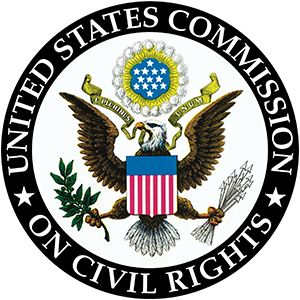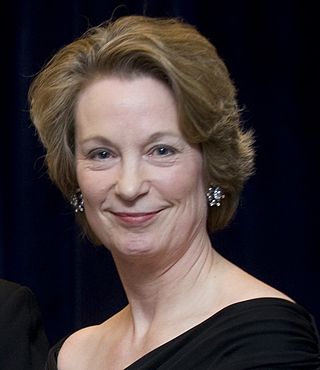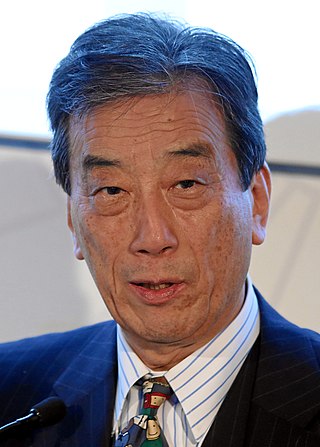Environmental science is an interdisciplinary academic field that integrates physics, biology, meteorology, mathematics and geography to the study of the environment, and the solution of environmental problems. Environmental science emerged from the fields of natural history and medicine during the Enlightenment. Today it provides an integrated, quantitative, and interdisciplinary approach to the study of environmental systems.

The Coalition Provisional Authority was a transitional government of Iraq established following the invasion of the country on 19 March 2003 by U.S.-led Coalition forces. The invasion marked the fall of the Ba'athist regime led by Saddam Hussein.

The United States Institute of Peace (USIP) is an American federal institution tasked with promoting conflict resolution and prevention worldwide. It provides research, analysis, and training to individuals in diplomacy, mediation, and other peace-building measures.

The International Joint Commission is a bi-national organization established by the governments of the United States and Canada under the Boundary Waters Treaty of 1909. Its responsibilities were expanded with the signing of the Great Lakes Water Quality Agreement of 1972. The commission deals with issues affecting the extensive waters and waterways along the Canada–United States border.
A select or special committee of the United States Congress is a congressional committee appointed to perform a special function that is beyond the authority or capacity of a standing committee. A select committee is usually created by a resolution that outlines its duties and powers and the procedures for appointing members. Select and special committees are often investigative, rather than legislative, in nature though some select and special committees have the authority to draft and report legislation.

James Charles Greenwood is an American politician in the Republican Party. He represented Pennsylvania's Eighth Congressional District for six terms in the United States House of Representatives.
The Committee on Space Research (COSPAR) was established on October 3, 1958 by the International Council for Scientific Unions (ICSU) and its first chair was Hildegard Korf Kallmann-Bijl. Among COSPAR's objectives are the promotion of scientific research in space on an international level, with emphasis on the free exchange of results, information, and opinions, and providing a forum, open to all scientists, for the discussion of problems that may affect space research. These objectives are achieved through the organization of symposia, publication, and other means. COSPAR has created a number of research programmes on different topics, a few in cooperation with other scientific Unions. The long-term project COSPAR international reference atmosphere started in 1960; since then it has produced several editions of the high-atmosphere code CIRA. The code "IRI" of the URSI-COSPAR working group on the International Reference Ionosphere was first edited in 1978 and is yearly updated.

The U.S. Commission on Civil Rights (CCR) is a bipartisan, independent commission of the United States federal government, created by the Civil Rights Act of 1957 during the Eisenhower administration, that is charged with the responsibility for investigating, reporting on, and making recommendations concerning civil rights issues in the United States. Specifically, the CCR investigates allegations of discrimination based on race, sex, national origin, disability. In March 2023, Rochelle Mercedes Garza was appointed to serve as Chair of the CCR. She is the youngest person to be appointed to the position.
Congressional oversight is oversight by the United States Congress over the executive branch, including the numerous U.S. federal agencies. Congressional oversight includes the review, monitoring, and supervision of federal agencies, programs, activities, and policy implementation. Congress exercises this power largely through its congressional committee system. Oversight also occurs in a wide variety of congressional activities and contexts. These include authorization, appropriations, investigative, and legislative hearings by standing committees; which is specialized investigations by select committees; and reviews and studies by congressional support agencies and staff.

Patricia Lynn Scarlett is an American government official, environmental policy executive and analyst who served as United States Deputy Secretary of the Interior from 2005 until 2009. She is a frequent commentator on environmental issues.
Steven Kent Metz is an American author and former professor of national security and strategy at the U.S. Army War College specializing in insurgency and counterinsurgency, American defense policy, strategic theory, the African security environment, and future warfare.
The Israeli Intelligence Community is made up of Aman, Mossad and Shin Bet.

Leslie Aspin Jr. was an American Democratic Party politician and economist who served as the U.S. representative for Wisconsin's 1st congressional district from 1971 to 1993 and as the 18th United States Secretary of Defense under President Bill Clinton from 1993 to 1994.

Susan Elaine Eisenhower is an American consultant, author, and expert on international security, space policy, energy, and relations between the Russian Federation and the United States of America. She is the daughter of John Eisenhower and the granddaughter of President Dwight D. Eisenhower.

The Alaska Department of Fish and Game (ADF&G) is a department within the government of Alaska. ADF&G's mission is to protect, maintain, and improve the fish, game, and aquatic plant resources of the state, and manage their use and development in the best interest of the economy and the well-being of the people of the state, consistent with the sustained yield principle. ADF&G manages approximately 750 active fisheries, 26 game management units, and 32 special areas. From resource policy to public education, the department considers public involvement essential to its mission and goals. The department is committed to working with tribes in Alaska and with a diverse group of State and Federal agencies. The department works cooperatively with various universities and nongovernmental organizations in formal and informal partnership arrangements, and assists local research or baseline environmental monitoring through citizen science programs.
The Investigation Committee on the Accident at the Fukushima Nuclear Power Stations of Tokyo Electric Power Company was formed June 7, 2011 by the Japanese government as an independent body to investigate the March Fukushima Daiichi nuclear disaster. The Investigation Committee issued an interim report in December 2011, and issued its final report in July 2012.

National Diet of Japan Fukushima Nuclear Accident Independent Investigation Commission or NAIIC is the commission to investigate the background and cause of Fukushima Daiichi nuclear disaster formed by the statutory law enactment by Diet of Japan on 7 October 2011 and started with the first commissioning meeting was held in Fukushima City, Fukushima Prefecture. The commission is scheduled to issue the report in six months on investigation and to propose the policy to reduce and prevent future accident and reduce damage on the nuclear power plant in Japan.
The Bipartisan Commission on Biodefense, formerly known as the Blue Ribbon Study Panel on Biodefense, is an organization of former high-ranking government officials that analyzes US capabilities and capacity to defend against biological threats. According to the Commission's mission statement, the organization was formed to "provide for a comprehensive assessment of the state of U.S. biodefense efforts, and to issue recommendations that will foster change."

A Blue Ribbon Commission on America's Nuclear Future was appointed by US President Barack Obama to look into future options for existing and future nuclear waste, following the ending of work on the incomplete Yucca Mountain Repository. In 2012, there were 70 nuclear power plant sites where 65,000 short tons of spent fuel is stored in the US. Each year, more than 2,000 short tons (1,800 t) are added to this total. Nine US states have "explicit moratoria on new nuclear power until a storage solution emerges". A deep geological repository seems to be the favored approach to storing nuclear waste.

The National Biodefense Strategy Act of 2016 is a bill introduced in the United States Senate by U.S. Senator Ron Johnson (R-Wisconsin). The bill would amend the Homeland Security Act of 2002 by requiring the government to change its current policy and programs to coordinate and improve biodefense preparedness. Johnson is the current chairman of the Senate Committee on Homeland Security and Governmental Affairs.











